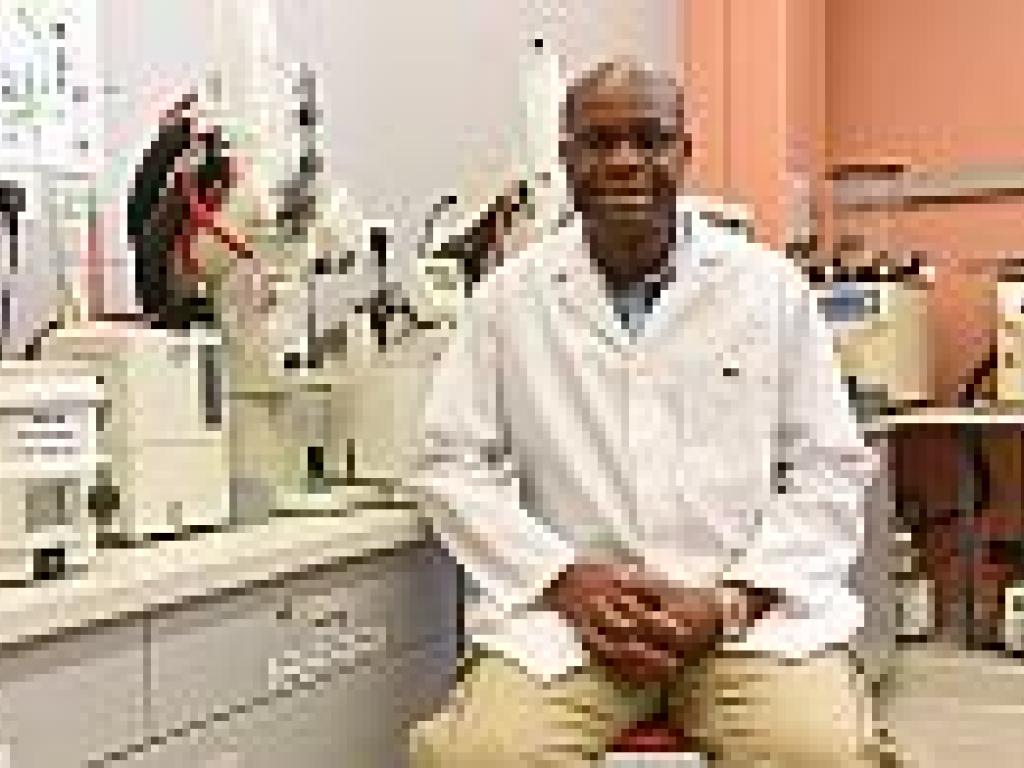Five questions with Prof. Kelly Chibale

This week, we were fortunate to catch up with Professor Kelly Chibale, Principal Investigator at the University of Cape Town, founder of Africa’s first drug discovery and development centre, H3D, and one of the speakers at our #ScienceAfrica UnConference this year. Professor Chibale spoke eloquently about his efforts to create novel medicines to combat the major diseases in Africa as well as his concerted advocacy for greater investment in hard scientific infrastructure.
1) Could you please tell us about the creation of H3D, Africa’s first drug discovery and development centre?
It is vital for African scientists to enhance the continent’s drug discovery capability to address its health needs, in particular, as well as those of the rest of the world. Prior to the establishment of H3D in Africa, there was limited expertise to discover modern medicines on the continent, and our scientists lacked capacity and competence in several key areas. As a result, the creation of H3D recognised the need to address the shortage of requisite pharmaceutical industry skills as well as poor access to enabling technology platforms and expertise in Africa. Furthermore, the centre was established to harness modern pharmaceutical industry skills and expertise in the drug discovery value chain. It integrates medicinal chemistry, biology, pharmacology as well as drug metabolism and pharmacokinetics studies.
H3D’s remit is to concentrate on the discovery of novel potential modern medicines to combat the major diseases in Africa. In addition, our objective is to equip a new generation of African scientists with the key modern pharmaceutical industry skills required to discover modern medicines. In so doing, H3D is bridging the gap between the laboratory and the patient in the clinic.
2) Last year, you led a team at H3D that discovered two anti-malarial compounds that have the potential to fight the malaria parasite at all three stages of its life cycle. Could you tell us more about this?
H3D led the research leading to the discoveries in partnership with Medicines for Malaria Venture (MMV) and with the collaboration of a team of international researchers.
The two anti-malarial compounds, MMV048 and UCT943, both target activity across the entire human malaria parasite life cycle. The most advanced compound is MMV048, which is in human clinical trials. This compound’s development marks the first time that an Africa-led drug development effort has taken a small molecule from high throughput screening through to human clinical trials, all through modern drug discovery techniques.
Our paper for the prestigious journal, Science Translational Medicine, describes the discovery and profiling of MMV048. The compound is effective against resistant strains of the malaria parasite, and across the entire parasite lifecycle, with the potential to cure and protect in a single dose. In addition, MMV048 is able to block all life cycle stages of the malaria parasite, offer protection against infection as well as potentially block transmission of the parasite from person to person via the mosquito. All of these qualities suggest that this compound could contribute to the eradication of malaria.
In 2014, MMV048 became the first new antimalarial medicine to enter phase I human studies in Africa. Today, this compound is now entering phase IIA human trials also on the continent.
3) At our #ScienceAfrica UnConference, you called for greater investment in high-quality R&D infrastructure on the continent. What infrastructure is particularly needed?
Priority R&D infrastructure that is required can vary from country to country, but at least includes functional modern research laboratories, serviceable equipment, and the provision of basic services such as IT/internet, electricity and water. Furthermore, our scientists require a supportive enabling research environment that provides assistance with operations as well as research project and financial management.
4) What is your advice for young Africans who are hoping to pursue a career in the sciences?
First, I would encourage young Africans to take ownership, as you need to advocate to ensure that skills and infrastructure are built within your environments. Similarly, I would encourage aspiring scientists to lobby for increased investment in infrastructure when they are presenting successful scientific endeavours. I would also urge them to develop strong and varied networks and maintain them over the course of their careers. In addition, they should feel empowered to create a movement to change the cultures in their organisations, as well as using their minds, ideas and environment to meet human needs.
5) What is your hope for science in Africa in 2018?
I hope that we can focus on proactively seeking out and nurturing existing pockets of excellence in Africa, such as H3D, that are both scientifically outstanding and entrepreneurial.
